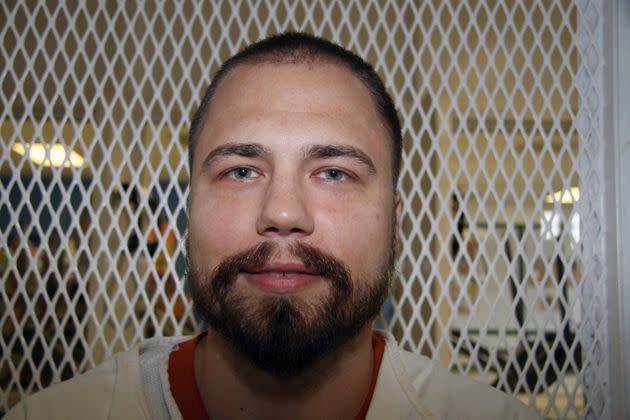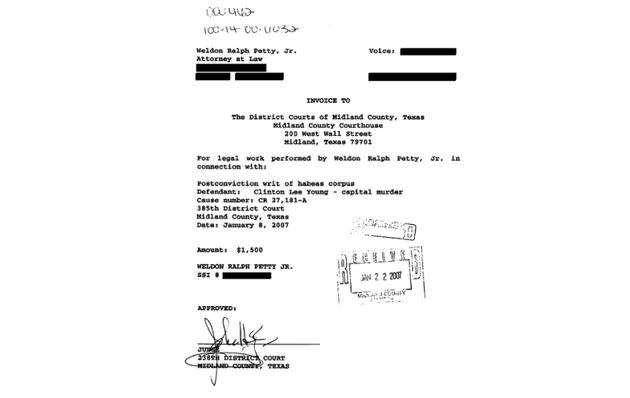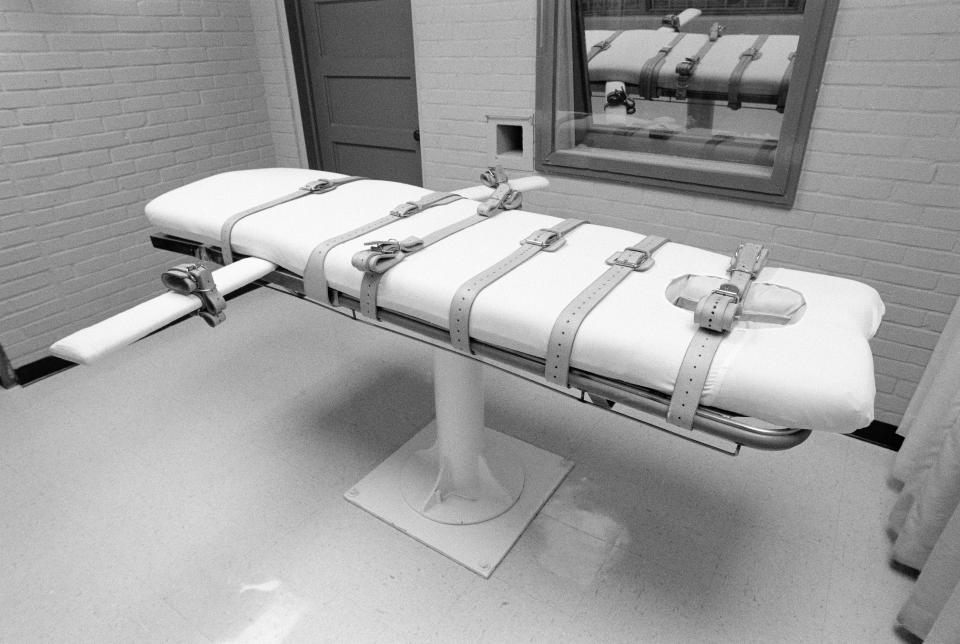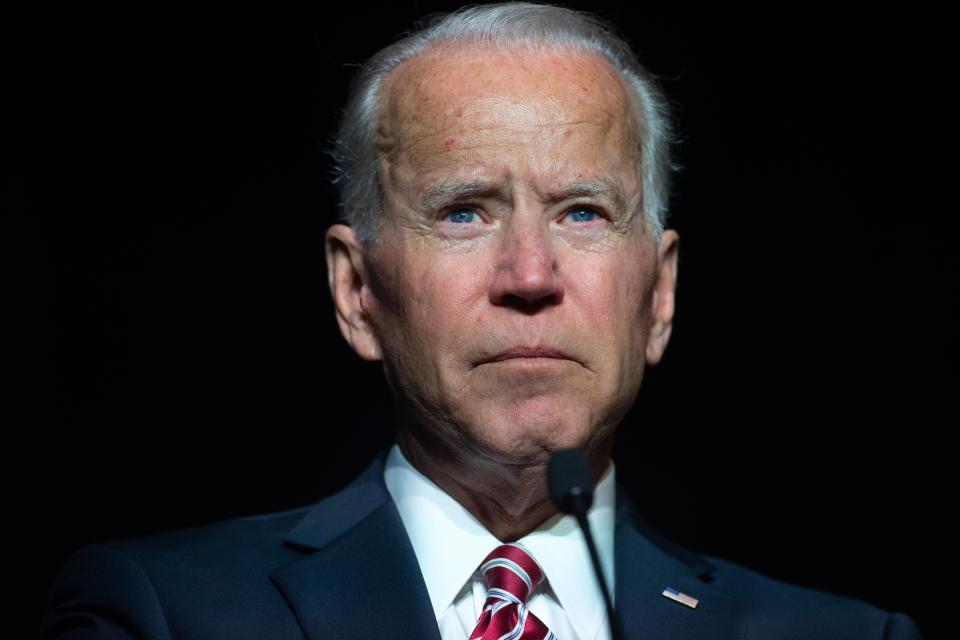He Was Nearly Executed 4 Years Ago. Now A Texas Appeals Court Has Tossed His Conviction.

Last week, a man on Texas’ death row who came within days of being executed in 2017 had his conviction overturned by the Texas Court of Criminal Appeals. The reversal did not occur because of a dry legal technicality but rather because a stunning perversion of justice had occurred: The prosecutor in his case, it turned out, was also on the payroll of the judge who presided over it.
Clinton Young was sentenced to death by a Midland County jury in 2003 on charges of murdering two people. Young has steadfastly maintained his innocence and says he was framed for the killings by his co-defendants. At the time of Young’s trial, one of the prosecutors, Weldon Ralph Petty, was earning extra money doing legal work for state District Judge John Hyde, who was overseeing Young’s trial.
Current Midland County District Attorney Laura Nodolf says she discovered Petty’s side work in 2019 while reviewing a billing spreadsheet. Defense lawyers then obtained additional documents detailing the scope of Petty’s conflict of interest. Over the course of Petty’s 18 years of employment with the D.A.’s office, he did legal work for at least nine judges, involving convictions of at least 355 individuals he prosecuted, according to a USA Today analysis of available records. Of those 355, 73 were still imprisoned as of February and many had died.
Petty received at least $132,900 for his work for the judges, including at least $64,100 from Hyde, the judge who presided over Young’s trial. In one invoice Petty submitted, he requested $1,500 from Hyde for his work on Young’s case.

“Judicial and prosecutorial misconduct — in the form of an undisclosed employment relationship between the trial judge and the prosecutor appearing before him — tainted [Young’s] entire proceeding from the outset,” the Texas Court of Criminal Appeals wrote in an unsigned opinion and order last week. “The evidence presented in this case supports only one legal conclusion: that [Young] was deprived of his due process rights to a fair trial and an impartial judge.”
The court ordered that Young be taken off death row — where he has spent 18 years in solitary confinement — and sent to the county jail until prosecutors decide whether to pursue another trial or drop the case. Nodolf, the district attorney who discovered the conflict of interest, has recused herself from Young’s case.
“We applaud the court’s decision recognizing that Mr. Young was deprived of a fair trial,” deputy federal public defender Joseph Trigilio wrote in an email. “In 2017, our client was only days away from being executed when the Court of Criminal Appeals stayed his case after being presented with evidence that the prosecution presented false testimony at his trial.”
Petty, who retired in 2019, isprohibited from practicing law in Texas. He declined to attend a January hearing to determine whether his prosecutorial misconduct warranted a new trial for Clinton. Petty cited his poor health and fear of contracting the coronavirus, despite the hearing being held via videoconference.“My appearance at a hearing on the Clinton Lee Young matter should not include a possible death sentence,” he wrote.
Young’s case centers on the 2001 killings of Doyle Douglas and Samuel Petrey, which took place days apart. Douglas was shot in the head while in the car with Young and three other men while the group was on its way to buy drugs. Shortly after, he was shot again and left in the woods in East Texas. Young and one of the men in the group, David Page, then drove to West Texas, where they encountered Petrey in a parking lot. Page and Young each blame the other for kidnapping Petrey, who was later shot dead in a Midland County oilfield.
Page then turned himself in to law enforcement and accused Young of both killings. Young’s trial attorneys failed to present evidence that would have discredited his accomplices’ account of the crime. His post-conviction attorneys later presented evidence that Young’s co-defendants were offered leniency in exchange for testifying against Young. Of the three men who were with Young during the first killing, one was not charged, a second was sentenced to 15 years and the third (Page) was sentenced to 30 years. The co-defendants’ testimony was inconsistent and at times at odds with ballistics evidence.
Page’s testimony accusing Young of killing Petrey was critical in securing the death penalty. Young was just 18 at the time of the crime, barely old enough to be legally eligible for the punishment.
In 2017, Young came within days of being executed. Petty played a role in this, too. At the time, Petty filed a motion before Judge Robert Moore — another judge he worked for — seeking an execution warrant for Young. Moore obliged and scheduled Young to be killed on Oct. 26, 2017.
In a court filing, Young and his lawyers accused prosecutors of obtaining his death sentence with false or perjured testimony from Page. They submitted evidence showing that gloves Page wore during the crime had gunshot residue on them and they handed over four affidavits from people who say they heard Page brag in prison about killing Petrey and blaming Young. A week before Young was scheduled to be killed, the Texas Court of Criminal Appeals halted the execution and ordered the trial court to hold a hearing on Young’s allegations.
On Oct. 4, 2017 — after the execution warrant was filed but before the court halted the killing — Nodolf interviewed Page. During that interview, Page admitted that he, not Young, had kidnapped Petrey — an admission that contradicted his testimony at trial. As Young’s execution date neared, the D.A.’s office made no mention of this new exculpatory evidence. It wasn’t until Oct. 25 — after the court had already stayed the execution — that a newly assigned prosecutor told Young’s defense counsel about the interview.
Before the hearing over the truthfulness of Page’s trial testimony could take place, the district attorney’s office moved to recuse itself from Young’s case, citing Petty’s dual role as a prosecutor and a de facto judicial clerk. Clinton petitioned for a new trial. Last week, the court granted his request.
It is not yet clear whether the rest of the people whose cases were tainted by Petty’s dual work will get relief. Now Young has to rely on the same system that has forced him to spend 18 years on death row to get it right.
“We are relieved that the State now has the opportunity to take a fresh look at the facts of this case,” Trigilio wrote, “and we are hopeful any new proceedings will be fair and just for all involved.”
Read Clinton Young’s 2020 habeas application here:
This article originally appeared on HuffPost and has been updated.



